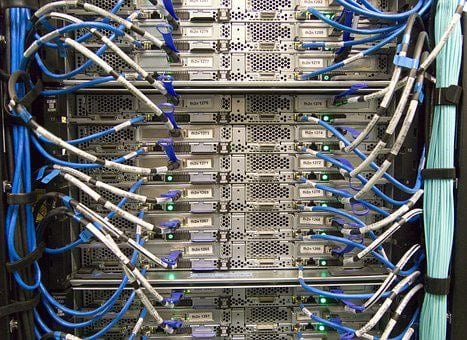The advantages of buying refurbished servers are many, but you can’t simply pick up what you need from the first seller you find. Just like with any other big purchase, it’s possible to get a bad deal and regret the decision. Fortunately, it’s easy to prevent this from happening; you just need to know what you’re doing. For instance, say you’re interested in buying refurbished Cisco, but you don’t have a seller lined up. The main hurdle will be finding the right seller; once that’s done, you’ll have peace of mind that you can trust the products you’ve purchased.
It’s important to point out that refurbished servers aren’t the same as used ones. Sure, they aren’t new, but they’ve been through a rigorous process to ensure that they’re still quality products. This process includes an inspection, repairs if necessary, testing, software updates, and then a reset to factory settings. After all that, you have a product that’s in like-new condition; the main difference is that it could have a slightly shorter lifespan, and may lack some of the bells and whistles that are available on newer servers.
The biggest risk of buying refurbished servers is using an unreliable seller
Look at any discussion of the advantages and disadvantages of refurbished products, and the main disadvantage will always be the possibility of shady sellers. This isn’t a problem with the products; it’s just that too many sellers are trying to make a buck without ensuring that they’re selling a quality product.
The good news is that this is relatively easy to avoid; just do your homework on the seller before committing to a purchase. Here’s what to consider:
What do their online reviews say?
If there’s one thing you can depend on, it’s that people love to record their bad experiences with sellers online. A seller who routinely treats their customers poorly will definitely have some unfavorable reviews to show for it, so this is a great way to get the low-down on a company you’re considering buying from. Conversely, you might find that a vendor you’re considering has excellent reviews; that could confirm that you’re headed in the right direction.
Do they include warranties or return policies?
The first thing you’ll want to check for is whether or not they offer a warranty with their products by default. Hopefully you’ll at least get a 1-year warranty, but it can be all over the map. Some sellers don’t offer warranties (which could be a red flag), while others offer true lifetime warranties. Sometimes you could get a limited warranty with your purchase, with the option to buy an extended warranty.
A return policy is also something to check for. Even if you probably won’t use it, that’s a nice safety net to have. Plus, it tells you that the vendor stands behind their product; an “all sales are final” approach makes you wonder why they won’t commit to replacing malfunctioning products within a relatively short time frame.
Will they help guide you to the right purchase?
A lot of people who need refurbished servers aren’t acquainted with all the available options. They’ll probably know the technical specifications of what their company needs, but finding the right server is a different matter. Knowledgeable vendors will be able to identify what you need without trying to upsell you or push you past your budget. No matter what price point you’re looking for, the person you’re talking with should be able to explain why the products cost as much as they do.
What’s the extent of their customer support?
Even though you’re technically buying “used” equipment, you aren’t just making a purchase on eBay; companies that sell refurbished servers and networking equipment are established and (hopefully) reputable. As such, they often provide the same level of customer support as companies that sell the same equipment new. When you’re selecting a seller, ask about the level of customer support they provide. Is there a 24/7 phone number to call? Do they offer emergency shipping for replacement parts? How easy is it to file warranty claims? (Online reviews could shed some light on this.) Whatever kind of support they offer, it should ideally be free and available round-the-clock.
How long have they been in the refurbishing business?
Wisdom may not always come with age, but there’s a lot to be said for experience if you’re in the refurbishing industry. The longer a vendor has spent honing their refurbishing skills, the better your chances of working with experts. They won’t just go through the motions; they’ll complete an established process of refurbishment to ensure top-quality products.
This can also have other benefits. If you’re dealing with an established seller, you could be more likely to enjoy extras like free shipping, international shipping, lowest-price guarantees, and so on. Newer sellers will likely be working with tighter profit margins, so they won’t necessarily be in a position to offer as many extras to their customers.
What’s their refurbishing process?
If a seller can describe how they refurbish products (besides simply saying “we’re really good at it, we promise”), that’s a good sign. Volunteering that level of insight into their expertise increases the likelihood that they’re both thorough and precise.
A short checklist for refurbished servers
If you’ve bought some refurbished servers and want to confirm that they’re in working order, here’s what to do:
- Check for obvious damage, and to make sure you’ve gotten the correct product.
- Turn the server on and listen for any odd noises. You shouldn’t hear anything besides the fan.
- If there are no error messages, go through the steps to configure the server for your network.
- Allow it to run for 24 hours, turn it off, and then reboot.
- Assuming your settings are still in place, you’re good to go!
In conclusion
It’s totally possible to buy high-quality refurbished servers, as long as you’re using the right vendor. With a bit of caution and some common sense, you shouldn’t have any trouble finding exactly what you’re looking for.



